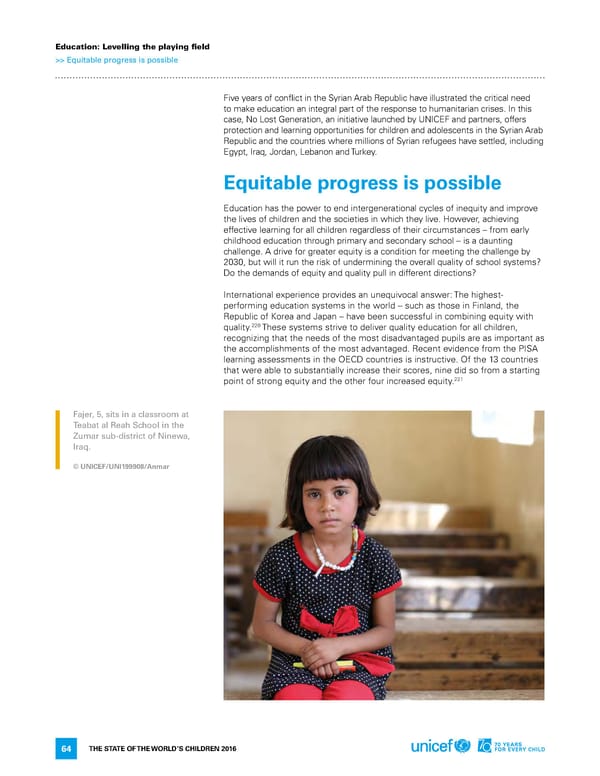Education: Levelling the playing field >> Equitable progress is possible five years of conflict in the Syrian arab republic have illustrated the critical need to make education an integral part of the response to humanitarian crises. in this case, no lost Generation, an initiative launched by UniCef and partners, offers protection and learning opportunities for children and adolescents in the Syrian arab republic and the countries where millions of Syrian refugees have settled, including egypt, iraq, Jordan, lebanon and Turkey. Equitable progress is possible education has the power to end intergenerational cycles of inequity and improve the lives of children and the societies in which they live. however, achieving effective learning for all children regardless of their circumstances – from early childhood education through primary and secondary school – is a daunting challenge. a drive for greater equity is a condition for meeting the challenge by 2030, but will it run the risk of undermining the overall quality of school systems? do the demands of equity and quality pull in different directions? international experience provides an unequivocal answer: The highest- performing education systems in the world – such as those in finland, the republic of Korea and Japan – have been successful in combining equity with 220 quality. These systems strive to deliver quality education for all children, recognizing that the needs of the most disadvantaged pupils are as important as the accomplishments of the most advantaged. recent evidence from the PiSa learning assessments in the oeCd countries is instructive. of the 13 countries that were able to substantially increase their scores, nine did so from a starting 221 point of strong equity and the other four increased equity. Fajer, 5, sits in a classroom at Teabat al Reah School in the Zumar sub-district of Ninewa, Iraq. © UNICEF/UNI199908/Anmar The STaTe of The World’S Children 2016 64
 70 Years for Every Child Page 79 Page 81
70 Years for Every Child Page 79 Page 81